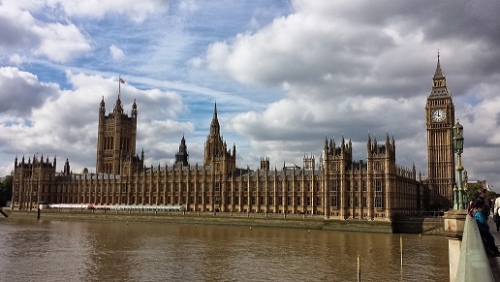Strategy
Investment Managers React To Unexpected UK Inflation Rise

After the UK’s annual inflation rate rose unexpectedly in December, investment managers assess the impact.
The latest data released this week by the Office for National Statistics shows that UK headline inflation rose unexpectedly to 4 per cent in December from 3.9 per cent in November, largely driven by rises in the price of cigarettes and alcohol.
Annualised inflation was forecast to come in at 3.8 per cent. Nevertheless, core inflation, which strips out food and energy prices, came in at 5.1 per cent in the 12 months to December 2023, unchanged from 5.1 per cent in November.
With UK interest rates currently standing at a high of 5.25 per cent, and the longer-term target for inflation at 2 per cent, the figures create some uncertainty over the timing of the Bank of England’s decision to reduce interest rates in 2024, with the next meeting scheduled on 1 February. The wealth management industry has been positioning asset allocation based on the belief that UK interest rates have peaked, and could decline at some point this year.
In the eurozone, inflation has also risen unexpectedly, reaching 2.9 per cent in December from 2.4 per cent in November, driven by an increase in energy costs, raising speculation on when the European Central Bank will cut interest rates, which currently stand at a high of 4 per cent. See more here.
Here are some reactions from investment managers to the latest news.
Nicholas Hyett, investment analyst at Wealth
Club
"A surprise jump in inflation is not good news. Policy makers,
mortgage holders, investors and the average shopper had all been
hoping price rises continued to slow over Christmas -
clearing the way for lower interest rates and easing the cost of
living crisis. Christmas was particularly expensive for
those indulging over the festive break, with alcohol and tobacco
the driving forces behind the uptick inflation, although food and
non-alcoholic drinks continued to see inflation slow.
“But, while the rise in headline inflation will attract the attention, longer term it’s the stubbornly high core inflation that is a greater concern. Until this comes down, the UK will be very vulnerable to global economic shocks that cause spikes in food and energy prices - and we've seen all too many of them recently."
Julian Jessop, economics fellow at the free market
Institute of Economic Affairs
“The tick up in UK inflation to 4 per cent in December will
probably delay the first rate cut from the Bank of England, but
one small miss in one month’s data does not change the big
picture. Inflation is still likely to fall to the 2 per cent
target in April and the markets will continue to price in large
rate cuts later in the year. Inflation is still lower than the
Bank of England’s forecasts, which predicted an average rate of
4.6 per cent in 2023 fourth quarter and 4.4 per cent in 2024
first quarter.
“Inflation will probably also be around 4 per cent in January, but the numbers should then drop rapidly again, especially in April when the Ofgem cap on domestic energy bills will be lowered sharply. There will be six Monetary Policy Committee (MPC) meetings between May and December, leaving plenty of time for the Bank to cut rates from the current 5.25 per cent – perhaps to around 4 per cent by the end of the year.”
Michael Browne, chief investment officer at Martin
Currie
“Whilst this month’s figures reverse last month’s downward
surprise, the trajectory remains down and this will accelerate as
we move to the spring and utility bills are cut, in line with the
price falls we have seen at the petrol pumps. But this will worry
the MPC and will enable them to sit on their hands for a longer
period, exactly the strategy they prefer. The market may push out
the first rate cut to the second quarter from the first quarter
and we will see the interest rate-sensitive sectors of the
housebuilders and banks react accordingly in the short term. We
would use any weakness here and in the consumer sector as a
buying opportunity. The direction of inflation is clear but as
ever one-month statistics can and will surprise.”
Jatin Ondhia, CEO of Shojin
“This is not the news that people wanted to see at the start of a
new year. But investors shouldn’t let this shock increase derail
their plans. It was just 0.1 per cent and, given interest rates
remain elevated, there are new opportunities.
“The question is whether this is a blip or it signifies more inflation troubles in 2024. If indeed inflation does start to steadily fall again, the base rate is also expected to be cut later this year. So, people will need to consider how they respond to these shifts, as well as broader considerations, such as ‘What happens if the UK economy enters a recession?’ and ‘What might the upcoming general election mean for my investments?’. To that end, given this lingering economic and political uncertainty, we should still expect diversification to remain a prominent trend this year. A balance of savings products and lower-risk investments will, for many investors, be balanced alongside some higher-risk investments, providing the opportunity for greater growth in the medium- to long-term.”
Douglas Grant, group CEO of Manx Financial
Group
“Today’s unexpected rise in inflation signals that the
business sector is not out of the woods yet and small and
medium-sized enterprises (SMEs) should take this as a reminder to
reevaluate their current lending arrangements and strengthen
their positions amidst and in preparation for political and
economic uncertainties.”